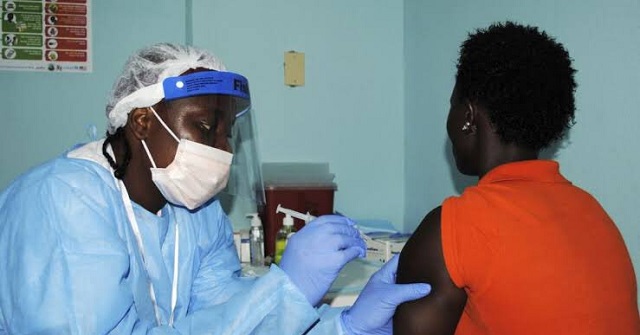
Kampala, Uganda | THE INDEPENDENT | Ebola surveillance officials at Bunagana and Chanika borders in Kisoro district are struggling to get water for use by people entering into Uganda, URN has learnt.
People entering Uganda via Bunagana and Chanika borders from the Democratic Republic of Congo and Rwanda respectively are required to wash their hands and shoes using water mixed with chlorine for disinfection.
Their temperature is also measured with an infra-red thermometer to ensure they are free from Ebola.
However, the Ugandan Ebola surveillance and Red Cross officials currently fetch the treated water from their DRC counterparts.
A Red Cross official in from Bunagana is DRC told URN on condition of anonymity that their Ugandan counterparts are completely dependent on them.
He accused the Ugandan Ebola surveillance of failing to treat their own water, saying they are considering stopping them from collecting it from DRC.
Matayo Kwizera, the Team Leader Uganda Red Cross Society in Kisoro District admits their dependence on DR Congo for the treated water.
Grace Kabgho, Regional Field Coordinator International Organization for Migration-IOM, says they have already the district authorities about the need for them to start treating their water and depending on DR Congo.
Douglas Bawe, the Officer-in-Charge of Kisoro Police Station, says their efforts to supply water to Bunagana and Chanika borders using police trucks hit a dead end to lack of tanks to save the water.
William Kamara, the Kisoro Deputy Chief Administrative Officer attributes the problem to lack of adequate functioning water sources.
He however, says the problem will be solved soon since they have already partnered with National Water and Sewerage Corporation to extend piped water to Bunagana and Chanika borders.
Annet Dusabe, the Assistant Kisoro District Health Officer, says despite the water problem, they are well prepared to handle any suspected Ebola case they detect.
The Ebola death toll in DRC has increased to 1,008 from 1,450 confirmed cases registered since the epidemic erupted in August 2018, according to DRC sources.
On Saturday last, the International Federation of Red Cross and Red Crescent Societies (IFRC) said 23 cases were reported in one day, a record number since the outbreak was reported.
*****
URN
 The Independent Uganda: You get the Truth we Pay the Price
The Independent Uganda: You get the Truth we Pay the Price



